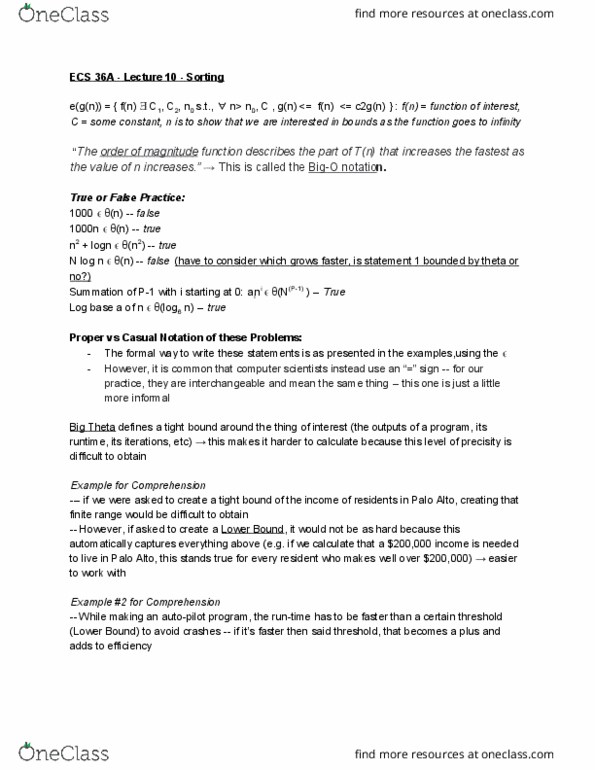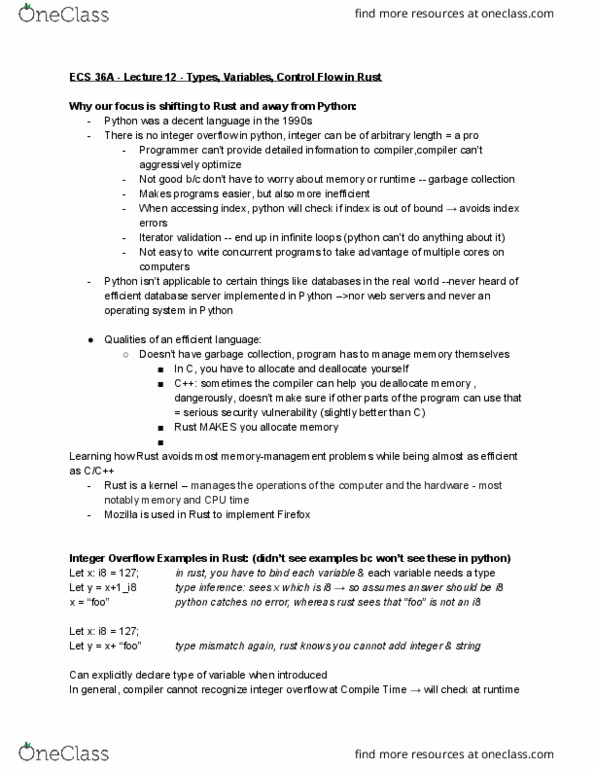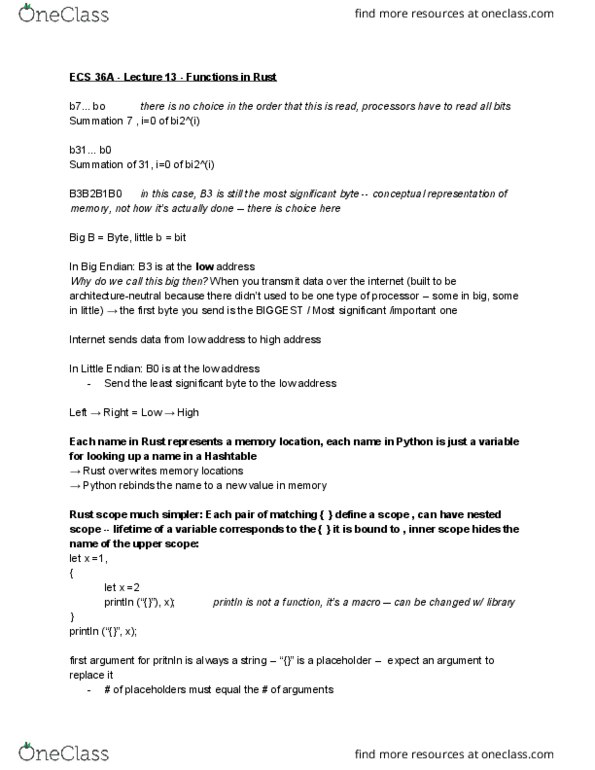ECS 36A Lecture Notes - Lecture 12: Integer Overflow, Database Server, Type Inference
ECS 36A verified notes
12/21View all
Document Summary
Ecs 36a - lecture 12 - types, variables, control flow in rust. Why our focus is shifting to rust and away from python: Python was a decent language in the 1990s. There is no integer overflow in python, integer can be of arbitrary length = a pro. Programmer can"t provide detailed information to compiler,compiler can"t aggressively optimize. Not good b/c don"t have to worry about memory or runtime -- garbage collection. Makes programs easier, but also more inefficient. When accessing index, python will check if index is out of bound avoids index errors. Iterator validation -- end up in infinite loops (python can"t do anything about it) Not easy to write concurrent programs to take advantage of multiple cores on computers. Python isn"t applicable to certain things like databases in the real world --never heard of efficient database server implemented in python -->nor web servers and never an operating system in python.




